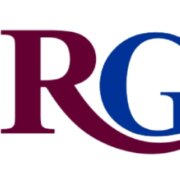Best Collaborative Law Lawyers in Botswana
Share your needs with us, get contacted by law firms.
Free. Takes 2 min.
Free Guide to Hiring a Family Lawyer
Or refine your search by selecting a city:
List of the best lawyers in Botswana
About Collaborative Law in Botswana
Collaborative Law is a legal process that offers an alternative to litigation for resolving disputes, particularly in family and other civil matters. In Botswana, Collaborative Law emphasizes agreement and cooperation over adversarial tactics, aiming to uphold relationships and minimize conflict. The process typically involves both parties hiring collaboratively trained lawyers who help negotiate and settle disputes out of court, offering a more peaceful and cost-effective resolution.
Why You May Need a Lawyer
There are several situations where individuals might seek the expertise of a lawyer specializing in Collaborative Law in Botswana:
- Family disputes such as divorce or child custody arrangements where maintaining amicable relationships is preferable.
- Business disagreements between partners where ongoing collaboration is essential.
- Community or neighborhood disputes where harmonious living is a priority.
- Any civil conflict where the parties have an interest in resolving issues collaboratively rather than through litigation.
A lawyer trained in Collaborative Law can provide valuable guidance in pursuing resolution through structured negotiation and openness, avoiding the potential high costs and emotional strain of traditional court proceedings.
Local Laws Overview
Botswana's legal landscape regarding Collaborative Law is influenced by principles of cooperation and mutual respect. Key aspects include:
- The legal recognition of settlement agreements reached outside of court, provided they comply with local regulations and fairness standards.
- The importance of confidentiality throughout the collaborative process, protecting the privacy of the parties involved.
- Guidelines for equitable negotiation, ensuring that both parties have equal opportunity to participate and influence the outcome.
Understanding these components can empower individuals to better navigate the collaborative process and achieve sustainable resolutions.
Frequently Asked Questions
What is Collaborative Law?
Collaborative Law is a legal process where parties work together with their lawyers to resolve disputes out of court, focusing on cooperation and mutual respect.
How does Collaborative Law differ from traditional litigation?
Unlike litigation, which is often adversarial, Collaborative Law seeks amicable solutions through structured negotiations, aiming to maintain relationships and avoid court interventions.
Is Collaborative Law suitable for all types of disputes?
While Collaborative Law is ideal for family and civil disputes where ongoing relationships are important, it may not be suitable for all cases, especially where power imbalances or noncompliance issues exist.
Can we use Collaborative Law if we've already started litigation?
Yes, parties can shift to a collaborative approach at any stage of litigation, provided both agree and wish to pursue out-of-court resolution.
What happens if we cannot reach an agreement?
If no agreement is reached, the parties may decide to pursue other alternatives, such as mediation or reverting to traditional court proceedings, although this is generally a last resort.
Are agreements reached through Collaborative Law legally binding?
Once an agreement is reached, lawyers can formalize it, making it legally binding if it meets the necessary legal standards and is approved by the court, if required.
Do we need to hire separate lawyers in Collaborative Law?
Yes, each party hires its own collaboratively trained lawyer to ensure fair representation and confidentiality during negotiations.
What costs are associated with Collaborative Law?
While the costs can vary, Collaborative Law typically incurs less expense than litigation due to its faster, more direct nature and reduced court fees.
How long does the Collaborative Law process usually take?
The duration varies depending on the complexity of issues and the willingness of parties to cooperate, but generally, it is quicker than traditional court cases.
Where can I find a Collaborative Law lawyer in Botswana?
Research local law firms that specialize in family and civil law and ask if they have trained collaborative practitioners on staff.
Additional Resources
For further assistance, individuals in Botswana can refer to the following resources:
- The Law Society of Botswana for finding qualified Collaborative Law professionals.
- Botswana Mediation Association for additional conflict resolution guidance.
- The Ministry of Justice and Security for understanding legal rights and obligations.
Next Steps
When seeking legal assistance in Collaborative Law, consider the following steps:
- Identify the main objectives and desired outcomes of your dispute resolution process.
- Research and select a lawyer specializing in Collaborative Law with relevant experience in Botswana.
- Prepare to engage in open and honest communication throughout the collaborative process.
- Be willing to consider compromises and alternative solutions to reach a satisfactory agreement.
Engaging in Collaborative Law can provide a more empowering and mutually satisfying approach to resolving disputes. With the right legal support, parties can achieve constructive outcomes that respect and uphold all interests involved.
Lawzana helps you find the best lawyers and law firms in Botswana through a curated and pre-screened list of qualified legal professionals. Our platform offers rankings and detailed profiles of attorneys and law firms, allowing you to compare based on practice areas, including Collaborative Law, experience, and client feedback.
Each profile includes a description of the firm's areas of practice, client reviews, team members and partners, year of establishment, spoken languages, office locations, contact information, social media presence, and any published articles or resources. Most firms on our platform speak English and are experienced in both local and international legal matters.
Get a quote from top-rated law firms in Botswana — quickly, securely, and without unnecessary hassle.
Disclaimer:
The information provided on this page is for general informational purposes only and does not constitute legal advice. While we strive to ensure the accuracy and relevance of the content, legal information may change over time, and interpretations of the law can vary. You should always consult with a qualified legal professional for advice specific to your situation.
We disclaim all liability for actions taken or not taken based on the content of this page. If you believe any information is incorrect or outdated, please contact us, and we will review and update it where appropriate.
Browse collaborative law law firms by city in Botswana
Refine your search by selecting a city.















